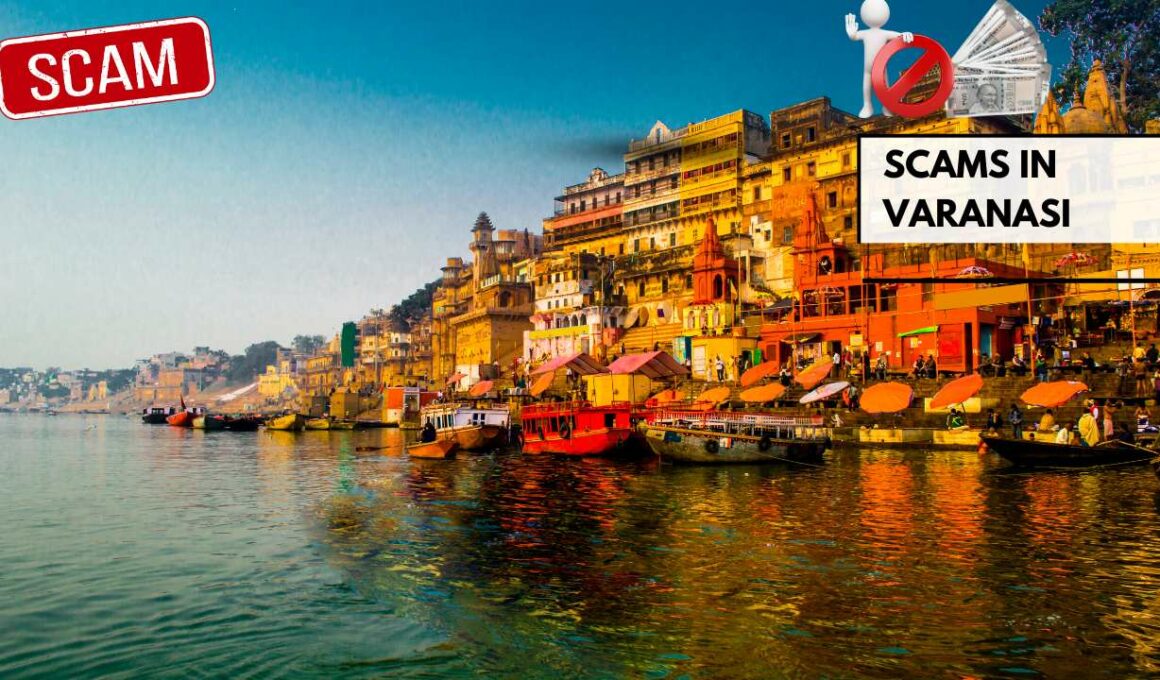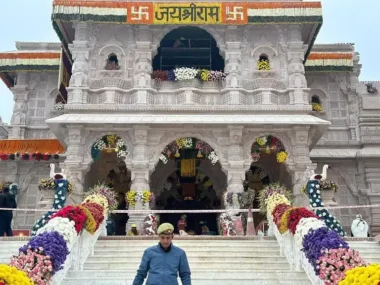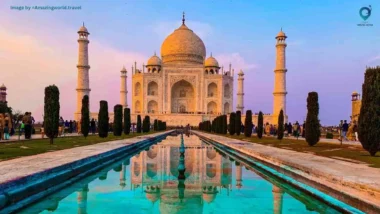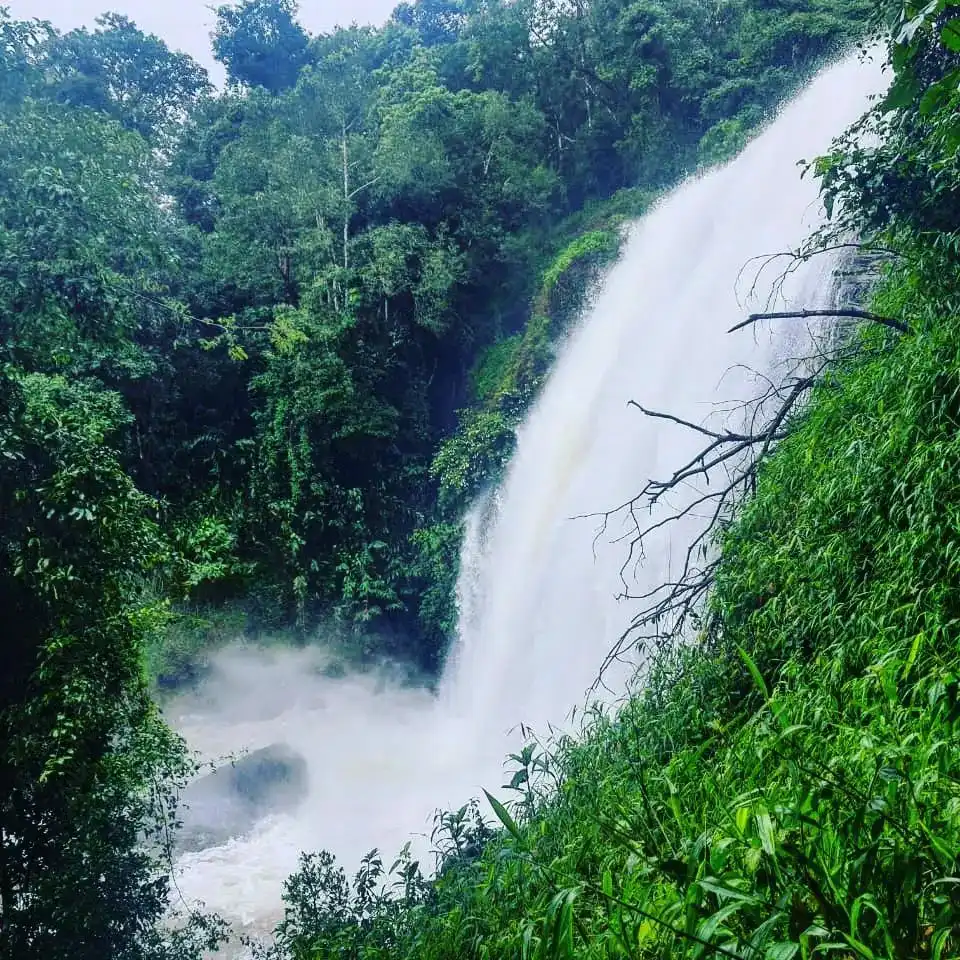Varanasi, a city rich in history and spirituality, draws millions of tourists every year. But with its popularity comes a rise in scams targeting travelers. During my visit, I quickly learned that while Varanasi’s beauty is captivating, being aware of common scams is essential for a smooth trip.
From fake tour guides to overpriced boat rides, these scams can affect your experience if you’re not careful. This article will help you stay informed about the top scams to avoid in Varanasi in 2025, ensuring you enjoy your trip safely and confidently.
Why you need to know about scams in Varanasi
Table of Contents
Toggle
When I visited Varanasi last year, I was amazed by its spiritual vibe and ancient beauty—but I also ran into a few situations that taught me some important lessons. On my very first day, a friendly man near the ghats offered to show me around as a “local guide,” and everything seemed fine until he suddenly demanded a huge fee for just 20 minutes of walking. Later, at a temple, a priest insisted I make a “mandatory donation” and became aggressive when I hesitated.
These experiences made me realize how easily tourists—especially first-timers—can fall into traps if they’re not aware. Varanasi is truly magical, but knowing about common scams before you go can help you enjoy the city with peace of mind and avoid getting cheated.
Also, Read: – India Most Famous Places: 16 Must-Visit Tourist Attractions
Top 10 Tourist Scams to Avoid in Varanasi in 2025

1. Fake Tour Guides and Priests – People pretending to help but asking for money

One of the most common scams in Varanasi involves people pretending to be helpful local guides or temple priests. These individuals often approach tourists near the ghats, temples, or famous spots, offering to show them around or help them perform a religious ritual. They may seem very polite and friendly at first, which makes them easy to trust.
For example, you might meet someone near Dashashwamedh Ghat who says, “I’m a local guide. I’ll show you hidden places and tell you interesting stories.” He walks with you for 15–20 minutes and talks about the city. But once you’re done, he suddenly demands a large amount of money, sometimes ₹500 to ₹1000, even if you didn’t agree on a price before.
Similarly, some men dressed as priests will offer to do a “puja” (ritual) for your family’s good luck. They’ll tie a red thread on your wrist, chant a few mantras, and then demand a “donation” of ₹2000 or more, pressuring you by saying it’s for temple maintenance or blessings.
Tip: Always book guides through official channels (like your hotel or a trusted travel agency) and politely say “no thank you” if someone approaches you out of nowhere.
2. Expensive Boat Rides – Charging Too Much for a Short Ride on the Ganga

Boat rides on the Ganga River are a must-do in Varanasi, especially during sunrise or the evening Ganga Aarti. But here’s where many tourists get tricked. Some boatmen or agents near the ghats will quote a very high price for a short ride. For example, a basic shared boat ride should cost around ₹100–₹200 per person, but they may ask ₹1000 or more, especially if you look like a first-time visitor.
I once met a couple from Europe who were charged ₹2500 for just a 30-minute rowboat ride. The boatman said it was a “special spiritual tour” and kept adding stops, like temples or mid-river rituals, just to make it sound worth the price. In reality, it was just a regular boat trip that should’ve cost much less.
Tip: Always ask for the full price and duration before getting in the boat. Compare prices or book through your hotel or a trusted guide if possible.
Must Read: – Top 14 Mysterious Places in India
3. Temple Donation Tricks – Forcing You to Donate in Temples

While many temples in Varanasi welcome donations, some dishonest people use high-pressure tactics to make tourists pay. This usually happens in smaller or less-known temples where someone inside, posing as a priest, will start a prayer or ritual without asking you. After a few chants, they’ll bring out a register and ask for your name and a large donation – often ₹1000 or more – claiming it’s for temple work or charity.
In one case, a traveler was asked to donate ₹5000 after a 5-minute puja. When they hesitated, the priest guilt-tripped them by saying things like “don’t you want blessings for your family?” or “people from foreign countries donate ₹10,000.”
Tip: If you want to donate, do it by your own choice and comfort. There’s no fixed amount, and you can always say no. Stick to bigger, well-known temples where things are more transparent.
Read:- Ram Mandir Latest News (2024 Updated): Entry Pass, Aarti Timing & Hotels
4. Rickshaw and Auto Scams – Drivers Taking Long Routes or Overcharging

Getting around in Varanasi by rickshaw or auto is common, but some drivers may try to take advantage of tourists. They might take longer routes on purpose or claim there’s traffic just to increase the fare. Sometimes they don’t use the meter and ask for a high amount at the end of the ride. I met a solo traveler who paid ₹300 for a ride that normally costs only ₹50!
Some drivers also say “the hotel you booked is closed” or “I’ll take you to a better one” – and then take you to a place where they earn a commission.
Tip: Always ask for the price before getting in. If possible, use apps like Ola or Uber for fixed rates, or ask your hotel for a fair price idea.
5. Fake Silk Shops – Selling Cheap Cloth at High Prices Saying It’s Real Silk
Varanasi is famous for Banarasi silk, and many tourists want to take some home. But this is where fake silk scams happen. Some shops claim they’re “government approved” or “family-owned for generations” and show you shiny cloth that looks like silk – but it’s actually synthetic. They price it like real silk – sometimes ₹3000–₹5000 for a cheap saree that’s worth ₹500.
A tourist I spoke with later found out their “pure silk” scarf melted when tested with heat – a sign it was fake!
Tip: Real silk is soft, not overly shiny, and has a slight texture. Ask for authenticity certificates or shop at government emporiums or places recommended by locals you trust.
6. Hotel Booking Lies – Taking Money for Hotels That Don’t Exist
This scam usually happens online or through random agents you meet near the station or on the streets. They’ll show you photos of a nice-looking hotel and take advance money for booking it. But once you reach the place, either the hotel doesn’t exist or it’s completely different (dirty, far away, or unsafe). One tourist booked through a so-called “travel desk” near the ghat, paid ₹2000 in advance, and later found out the hotel had no idea about the booking.
Tip: Always book through trusted websites or directly from the hotel’s official contact. If someone on the street offers to “help you find a room,” be careful.
7. Photo and Tip Scams – Asking for Tips After Taking Photos with You
Varanasi is full of interesting people – sadhus (holy men), street performers, even locals in colorful clothes. Sometimes they smile and pose for a photo with you, making it seem friendly. But after the photo, they suddenly demand a tip – sometimes ₹100–₹200! If you refuse, they may start arguing or make you feel guilty.
I once saw a foreign tourist surrounded by two “holy men” asking for money after a quick photo – she looked totally confused.
Tip: If you want to take a photo of or with someone, always ask first if they expect a tip. If someone offers a photo out of nowhere, be ready for them to ask for money afterward.
8. Pickpocketing in Crowds – Stealing Wallets or Phones in Busy Places
Varanasi’s crowded streets, especially around the ghats, markets, and temples, are prime spots for pickpockets. These criminals blend into the crowd, distracting you with small tricks or by bumping into you, while another person quietly steals your wallet or phone. I witnessed a tourist struggling to find her wallet after taking a photo near Dashashwamedh Ghat, realizing later it was taken during the hustle of a large crowd.
Tip: Always keep your valuables in secure, zipped pockets, and be extra cautious in crowded places. If someone bumps into you or distracts you, double-check your belongings.
9. Fake Helpers at Stations – Pretending to Help, Then Asking for Money
At Varanasi’s train station, you’ll often find people offering unsolicited help, like carrying your bags or guiding you to the right platform. They seem friendly, but once they’ve helped, they ask for a hefty tip – sometimes a ridiculous amount, far more than any service should cost. A tourist was once charged ₹500 for a simple bag carry, which was a scam because the same help was available for much less.
Tip: If you don’t need help, politely decline. If you do accept help, agree on the amount beforehand to avoid being overcharged.
10. Spiritual Tricks on Tourists – Faking Spiritual Rituals to Get Money
In Varanasi, the spiritual atmosphere can be overwhelming, and some people take advantage of it by faking spiritual rituals. They might approach tourists at the ghats or temples, offering to perform a “blessing” or “prayer” for you, claiming it will bring good luck or peace. Once the ritual is complete, they demand a large sum of money for their services. I saw a tourist get caught in this scam, as a so-called “priest” performed a brief blessing and then expected ₹1000 for a service that typically costs just a fraction of that.
Tip: Be cautious when approached for spiritual rituals or blessings. Always ask for a clear explanation of the cost before agreeing to any service. Genuine priests or guides won’t pressure you for money.
How to Stay Safe – Easy tips to avoid being scammed?
Be cautious with unsolicited help: In Varanasi, it’s common for people to approach tourists offering help with directions or showing you around. While some may genuinely want to assist, others are looking to trick you into paying them for their “services.” Always be cautious and decline offers unless you’ve specifically arranged for a guide.
Agree on prices upfront: One of the most important things to remember is to always agree on a price before you start any service, whether it’s a rickshaw ride, boat trip, or visiting a temple. Scammers often increase the price after you’ve enjoyed the service. Agreeing beforehand ensures you’re not taken advantage of.
Use reliable services: When booking transportation or tours, always go with well-known or recommended services. This will help you avoid shady deals and potential scams that could ruin your experience. If you’re booking a hotel, make sure it’s a reputable one that others have had good experiences with.
Keep valuables secure: Pickpockets are common in crowded places like temples, markets, and the ghats. Keep your belongings secure by using a money belt or keeping your wallet in an inside pocket. Don’t carry large sums of cash and be mindful of your surroundings to avoid getting your wallet or phone stolen.
Be careful with spiritual offers: Varanasi is a spiritual hub, and it’s common for people to offer you blessings or rituals. These experiences might start as “free,” but many times, they come with an unexpected fee. If someone approaches you with a spiritual offering, always ask if there is a cost involved before participating.
Avoid public distractions: Crowded areas are prime spots for pickpockets. If someone engages you in conversation or distracts you with something flashy, keep your hands on your bags and wallets. Staying alert in crowded spaces like temples, markets, or during festivals can help you avoid becoming a victim.
Trust your instincts: If something feels off, it’s okay to walk away. Whether it’s a too-good-to-be-true offer or an uncomfortable situation, trusting your gut can often save you from scams. Don’t hesitate to say no if you feel uneasy about a situation.
By following these practical tips, you’ll be better prepared to protect yourself from scams in Varanasi, allowing you to enjoy the city with peace of mind. Staying aware and cautious can make a big difference in ensuring a safe and memorable trip.
What to Do If You’re Scammed – Steps to take if something goes wrong?
- Stay Calm and Don’t Panic: First, take a deep breath and stay calm. Getting upset or agitated won’t help the situation. Assess what happened and think logically about your next steps.
- Confront the Scammer Politely: If possible, try to calmly confront the scammer. Politely tell them that you won’t pay or that you disagree with the charges. If they insist or become aggressive, it’s best to walk away without engaging further.
- Seek Help from Locals or Authorities: If the situation escalates, try to find a trusted local to help you. Hotel staff, shopkeepers, or other tourists might offer advice. If the scam involves a serious issue, report it to the local police or a nearby tourist assistance center. Many tourist areas have dedicated help desks for foreigners.
- Document the Incident: If you’ve been scammed out of money, try to keep records of what happened. Take photos or note down important details like the scammer’s appearance, location, and what they said or did. This can be useful if you need to report the incident to authorities or your embassy.
- Contact Your Embassy or Consulate: If the scam involves a significant amount of money, stolen documents, or serious threats, contact your country’s embassy or consulate. They can assist with legal matters, replacing stolen passports, and giving further guidance on how to deal with the situation.
- Warn Other Tourists: Once you’re safe, consider sharing your experience with other travelers, either in person or on online forums. This helps others avoid the same situation. You can also report the scam to local authorities or tourism boards to help them take action.
- Contact Your Bank or Credit Card Provider: If you’ve been scammed through credit card or bank transactions, immediately contact your bank or card provider. Many institutions offer fraud protection, and they might help you block any further charges or even recover lost funds.
- Learn from the Experience: While being scammed is unpleasant, use it as a learning experience for future trips. Remember what signs you missed, so you can better protect yourself next time.
By staying composed and following these steps, you can manage the situation more effectively. While scams are unfortunate, taking quick action and knowing where to turn can help minimize the impact and make the most of your time in Varanasi.
Final Words – Enjoy your trip safely and smartly
Traveling to Varanasi can be an incredible experience filled with rich culture, history, and spiritual moments. While scams are a reality, they shouldn’t overshadow the beauty of the city. By staying informed, being cautious, and following the tips shared, you can avoid falling victim to scams and enjoy your trip worry-free.
Always remember to trust your instincts, stay aware of your surroundings, and don’t hesitate to ask for help when needed. Embrace the sights, sounds, and experiences that make Varanasi so unique, but do so safely and smartly. With the right precautions, you’ll have an unforgettable, trouble-free adventure. Safe travels!

Meet David Hoper, a passionate travel Blog writer with 7+ years of experience in travel content. Through his exemplary storytelling and engaging narratives, he shares his experiences and brings destinations to life. With a keen eye for detail and a love for exploration, he has cultivated a diverse portfolio of travel blogs that inspire and inform readers worldwide.








